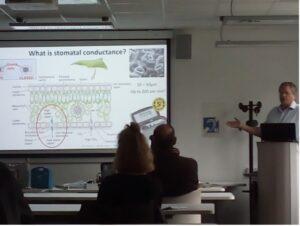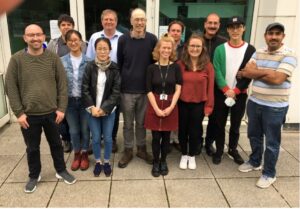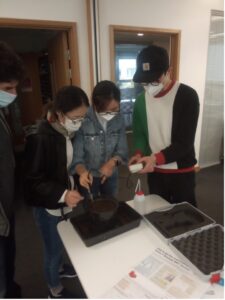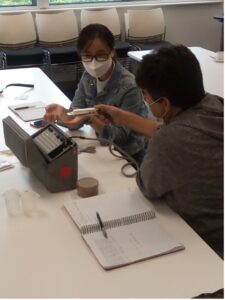Delta-T Workshop: covering the theory and practice of measuring soil and plant water status
In a refreshingly rare departure from the recent routine of online meetings, Lancaster Environment Centre hosted Tony Peloe of Delta-T Devices for a workshop covering the theory and practice of measuring soil and plant water status. To comply with University regulations on social distancing, workshop numbers were restricted to 12 (maximum capacity of the room) but nevertheless included 6 SHui-affiliated researchers: Jaime Puertolas (now a lecturer at La Laguna, Tenerife), Ryan Edge (currently Lancaster’s PDRA), Cristina McBride-Serrano (still in a technical role at Lancaster but moving to PhD studies shortly), Jing Chen (visiting from Yangzhou University, China), Yingying Ma (visiting from Northwest Agricultural & Forestry University, China) and Leonardo da Silva (visiting from University of Rio de Janeiro, Brazil). Each researcher was able to appraise the suitability of Delta-T’s extensive instrumentation range to help them address their research objectives.
Researcher familiarity with these instruments ranged from novice to highly experienced, so it was possible to pair researchers of different experience to swap best practice. Yahya Khan (visiting from University of Agriculture Faisalabad, Pakistan to research the impact of rhizobacteria on legume drought tolerance) won the “porometer calibration competition” with an error of just 3.3%, although further studies are needed to determine the influence of operator and specific porometer used, and any interaction ! In addition to briefing the group on porometer best practice, Tony introduced the extensive range of soil moisture instrumentation: PR2, SM150, WET sensor and the new digital WET150 soil sensor. After calibration exercises, sensor outputs were compared to understand the capacities of different sensors.




Selected attendee reflections were:
- Although I am an experienced user of most of the equipment shown, there were some interesting new features and gadgets that I could learn of.
- The workshop was already well managed and well organized. I don’t believe it needs further improvement but, it would be good if these types of workshops are arranged frequently to provide recent advancement in instrumentation and working principles.
- Tony was incredibly knowledgeable, patient and helpful and I know my confidence has grown when using Delta-T equipment.
- In China, such workshops would have had much greater attendance, so the smaller number of participants and relatively large numbers of the instruments allowed us hands-on personal experience and instruction.

0 comments